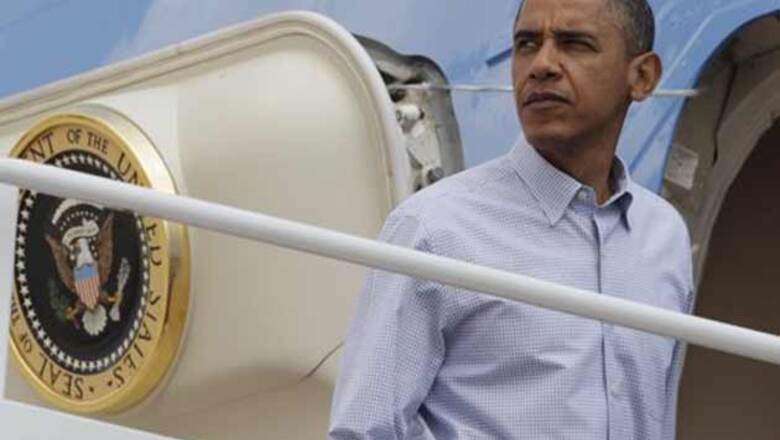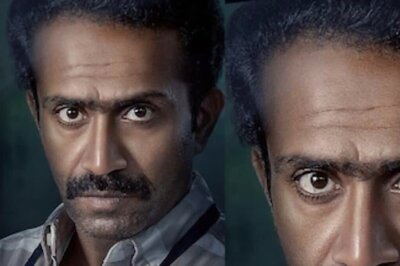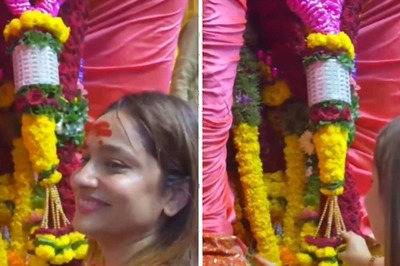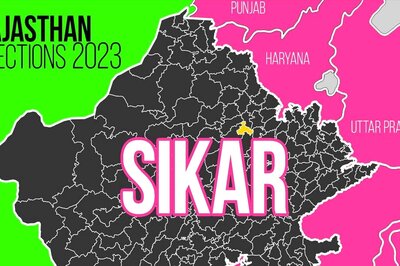
views
New Delhi: India today said it will not make any "hasty decisions" on the outcome of discussions with President Barack Obama on "complex" issues of outsourcing, seat for India in UN Security Council and withdrawal of US ban on export of dual-use technology.
Seeking to downplay Obama's remarks yesterday in which he did not hold out any assurances on these key concerns, Foreign Secretary Nirupama Rao said it would be wrong to prejudge the US leader's discussions with the Indian leadership. There has been a good "working progress" on elimination of obstacles created by dual-use controls of the US as governments of both countries were of the view that the issue need to be reviewed in order to reduce and "ultimately eliminate" it, Rao said.
She also disclosed that India has invited US companies to explain to them the provisions of its domestic civil nuclear liability law and address their concerns, if any, and also begin discussions on the next steps of implementation of civil nuclear power projects.
"A commercial delegation from the US is likely to visit India very shortly in this connection," Rao said. India was hopeful of participation of US companies in India's nuclear field.
Briefing the reporters about the high-profile visit, she said the Prime Minister looks forward to continuing his extremely productive dialogue with President Obama on a range of issues, including the global economic situation, the threat of terrorism, the challenges in India's neighbourhood, and the shared goals of sustained security, stability and prosperity in Asia.
"The US Administration under President Obama has expressed its commitment to strengthen Indo-US bilateral relations further, building upon the existing level of cooperation in various areas of bilateral and global engagement," she said. India and the US are likely to sign MoUs to deepen cooperation in the field of health, education, agriculture and clean energy, Rao said.
While a pact on weather and corp forecasting was expected in the agriculture area, establishment of a disease detection centre on the lines of American Centre for Disease Control with US help was also likely to be inked, she said.
India-US relationship is founded on shared values, increasingly convergent interests, enormous opportunities for mutually beneficial bilateral cooperation and a shared commitment to work together to address regional and global issues, Rao said.
Asked if India would take up the issue of terrorism emanating from Pakistan, which has recently been given $ 2 million by the US, she said India will obviously talk about the threat of terrorism directed at it from across the border, also the problem of terrorism in Afghanistan which is directly targeting Indian interests and the role of all major terror groups operating in the region.
About the comments of Home Secretary GK Pillai that India was not given access to full and specific information on David Headley, Rao said "...There has been unprecedented cooperation and there has been excellent and very responsive attitude from the American side on the investigation on Mumbai terror attacks. We have not been denied access to any information on this."
Asked if India will also seek support of US to be included as part of elite groups, including Nuclear Suppliers Group, the Foreign Secretary said all these issues are part of the strategic discussions between the two countries. Admitting that there were issues such as outsourcing which will be raised during the visit, Rao, however, said but what was different now was that the Indo-US relations have "matured".
She also outlined the schedule of the US President during his stay in India which will include meeting with business community in Mumbai on November 6, the day of his arrival, talks with the Prime Minister and address to the joint meeting of members of Parliament on November 8.



















Comments
0 comment